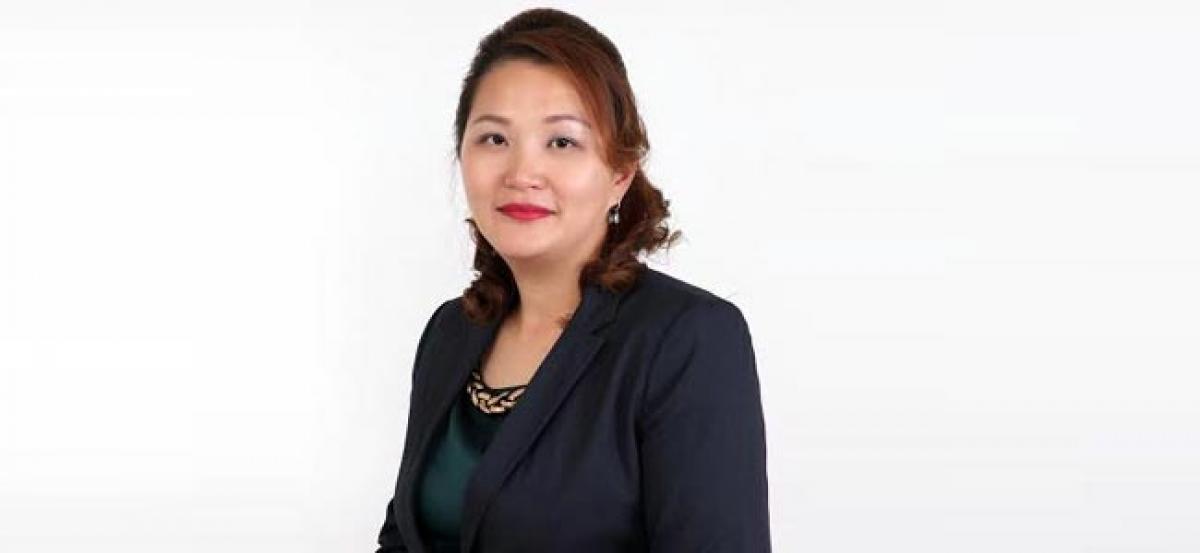Live
- Ahsaas Channaopens up about her complex character in ‘Mismatched 3’
- Radhika Apte welcomes first child, shares heartfelt post
- Jacqueline dazzles at Da-Bangg Reloaded concert
- Time to boost measures to prevent drowning, save children: WHO
- TDP achieves milestone with 73 lakhs membership registration, says Chandrababu
- South Korea: Main Oppn hails Yoon's impeachment motion passage as 'victory for people, democracy'
- RG Kar issue: Tension flared over parallel protests by Congress, SUCI(C) outside CBI offices
- After furore, Central Railway revokes order to raze Lord Hanuman Temple at Dadar
- Now hoteliers' body in Bengal's Alipurduar shut doors for Bangladeshi tourists
- District Collector Encourages Students to Utilize Government Facilities for a Better Future
Just In

Every year, the World Health Organization puts a spotlight on rising health concerns with a campaign of creating awareness and mobilizing action. 2017, marks the year that the gloves finally came off and we finally make a global effort towards combating depression.
By Sylvia Hii, Founder & VP- Marketing, Digital A Plus Group of Companies
Every year, the World Health Organization puts a spotlight on rising health concerns with a campaign of creating awareness and mobilizing action. 2017, marks the year that the gloves finally came off and we finally make a global effort towards combating depression.
Often overshadowed by social stigma and taboo, depression has silently penetrated into our society to such an extent that the WHO states that it is the leading cause of disability worldwide. You may be tempted to shrug it off and claim that everyone snaps out of depression sooner or later, but let’s stop and peek at the giant elephant in the room – suicide; depression if left untreated could lead to suicide. Alarmingly, suicide is the second leading cause of death among young adults aged 15-29. Most suicides happen impulsively when life stresses, such as financial matters, relationship break-up and chronic illnesses take a toll. Unlike other diseases, people who suffer from depression slip through the cracks more easily than we would like. Most do not seek treatment, some even worse, are unaware.
According to WHO, suicide prevention and tackling depression requires coordination and collaboration among multiple sectors of the society. Just like any other global campaign, all members of the society need to equally play their roles to create an impact. So, what role can digital health companies like ours help play towards combating depression?
Today, our society has become increasingly dependent on their mobile devices. Digital applications and the internet are things most of us can’t even dream of living without. Technology is integrated so deeply in our daily lives. How do we take advantage of our digital society to create awareness and breakdown the social stigma that surrounds depression?
There are already numerous apps available out there that help encourage us practice healthy lifestyle habits that we feel help you feel better. Apps such as breathe and mindfulness nudge you several times throughout the day to help you relax and let go of stress. While these apps certainly contribute in their own way, depression requires that we take our efforts further.
The danger in depression lies in the fact that often, people who suffer from depression are too embarrassed to seek help. Digital health companies have realized that if dating apps such as tinder could help even the loneliest of rangers come out of their shell, perhaps that same model could apply to the social stigma that surrounds depression as well. Patients would be more willing to seek the help of a volunteer or support group if they were able to do so within the privacy of their own home via their mobile devices. Just like the traditional approaches of managing depression, communication therapy if packaged in a user friendly digital app that helps its users avoid being stigmatized may seem more desirable.
Voluntary organisations such as Youthline New Zealand take providing support to depressed teenagers to a whole new level by providing 24/7 support via text, email, web chat on top of the more traditional face-to-face interactions and a telephone hotline. By training young volunteers to provide services back to their local communities it not only help those suffering silently with depression but also helps create awareness of the disease amongst the public.
With online support systems in place, the next digital venture on the horizon would be the monitoring and treatment phase of the disease. Although there are applications available out there such as the iCBT app, they are limited in number and there also seems to be a lack of functionality within these applications. iCBT is an app that provides a platform to identify, appraise and reappraise negative thoughts. Although a useful tool for self-help, the application still lacks the psychoeducation rationale provided. Here’s where we need to reach out to healthcare providers in the field of psychiatry to buy in to the idea of taking therapy digital.
Healthcare providers may still seem a little skeptical on taking the therapy and monitoring components of managing a disease digital. Agreed, that the role of a healthcare provider cannot be totally replaced by an app. However, healthcare providers should recognize that patient engagement in the digital age is highly dependent on them adapting the use of digital tools.
We may have a long road ahead before digital tools are completely integrated within the healthcare system, but I am proud to say that we are well on our way. WHO’s bold step towards demystifying the social stigma that is depression is a hopeful indeed.

© 2024 Hyderabad Media House Limited/The Hans India. All rights reserved. Powered by hocalwire.com







